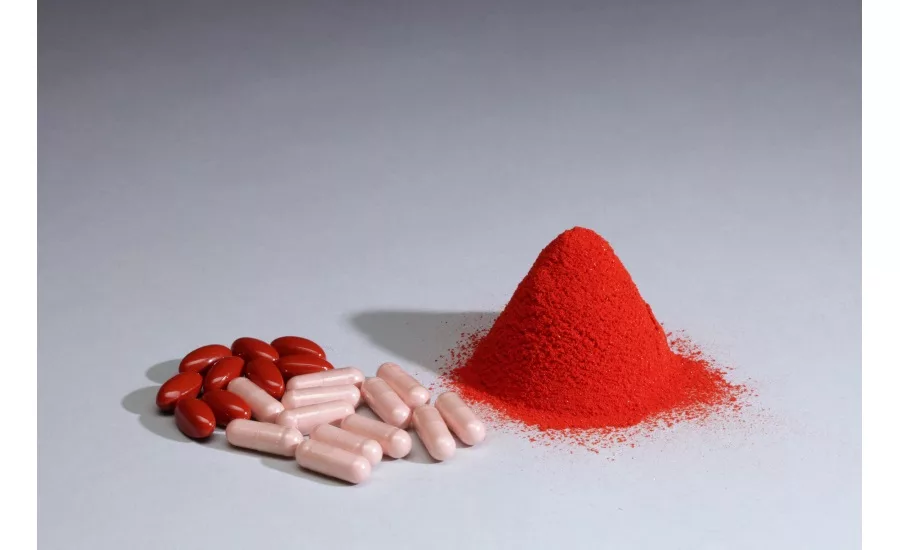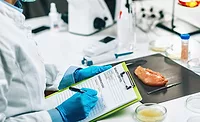How the clean label trend is changing the way supplement ingredients are perceived
Includes a greater emphasis on safety and efficacy


Food safety regulations are extensive, and today’s health-conscious consumer is paying closer attention to the ingredient lists more than ever before. According to Nielsen, “the importance of clarity around the attributes listed on package labeling is on the rise, particularly as consumers are increasingly focused on product and label transparency.” Although we tend to associate the clean label trend with food, it applies to supplements as well. Grand View Research projects the global dietary supplement market will reach USD 230.73 billion by 2027, signaling that people are depending more on daily supplements to fill in the gaps in their diets. With the increase in supplement intake and clean label trends, manufacturers must be more cognizant of consumer demands and amend their formulas to address their needs.
The clean label trend is indisputably changing the narrative of what is deemed safe and what consumers are willing to bend on. While consumers tend to have different perceptions of what they consider “clean label,” the broad, overarching understanding is that consumers want to be informed and see ingredients they recognize on the labels. They want to know that the products they’re ingesting are safe and effective and don’t contain artificial ingredients. For supplement ingredients, this would be equivalent to synthetically made products, which are man-made and produced within a lab rather than natural products that are made through proprietary fermentation methods.
There are many factors manufacturers should consider when selecting ingredients for their supplement formula. One that should never be compromised is the level of testing and research backing ingredients proving their safety and efficacy. There have been recent discrepancies whether ingredient suppliers are performing their own research or using studies from competing manufacturers. Pyrroloquinoline quinone (PQQ), a nutrient found naturally in certain fruits, vegetables and some meats that is widely recognized for creating new mitochondria, is an example of this questionable practice.
There are synthetic and other naturally made PQQs purportedly replicating other companies’ research to establish themselves within the nutraceutical industry or to receive regulatory notifications labeling them safe. Manufacturers must be aware of this practice and understand the potential risks non-researched ingredients may have on their customers and ultimately, their brand. Animal, in-vivo, in-vitro and human studies collectively establish credibility manufacturers, and consumers, can trust. Additionally, there are certain notifications manufacturers should know and look for when selecting supplement ingredients. They are:
- New Dietary Ingredient (NDI) from the U.S. Food & Drug Administration (FDA): The FDA has stringent qualifications that a manufacturer must follow to obtain this notification, including being able to demonstrate that the product does not present a significant or unreasonable risk of illness or injury. The FDA only approves about 30 percent of NDI applications.
- Informed-Choice and Informed-Sport: These quality assurance programs administered by a globally recognized organization attest to an ingredient’s safety for amateur and professional athletes alike, ensuring that each batch is tested for substances banned by the World Anti-Doping Agency (WADA).
While a NDI is extremely difficult to obtain (the agency favorably approves only 30 percent of submissions), there are some ingredient manufacturers that have been rejected for it and have applied for GRAS (Generally Recognized as Safe) status instead. Both notifications are given by the FDA, but there are discrepancies between the two. In the case of PQQ, the question has been raised whether GRAS status is as credible as one is led to believe. Recently, Congressman Tim Burchett, R-TN, wrote a letter to the FDA stating his concerns on this topic and the inconsistencies between the reports issued from two separate offices under the FDA.
As supplement use continues to increase, and more consumers globally turn to them to boost energy, get better sleep and for its cognitive benefits, just to name a few, supplement manufacturers should be aware of imitation brands that make lofty claims without solid proof and consumer trends at the forefront of the food and nutraceutical industries. With no sign of the clean label trend slowing down and consumer trust continuing to waiver, it’s important that supplement manufacturers select PQQ ingredients that are well-researched and proven to be safe and effective.
About Mitsubishi Gas Chemical and BioPQQ:
Marketed under the brand name BioPQQ, Mitsubishi Gas Chemical in Japan has developed a natural source of PQQ through a proprietary fermentation process. With more than 40 years of scientific research, BioPQQ has been shown to increase levels of mitochondria, which are critical for brain and heart functioning, and to support cognitive health by enhancing production of Nerve Growth Factor. What’s more, while notifications for other PQQ ingredients have been rejected, BioPQQ is the only PQQ supplement on the market that holds NDI notification. Extensive research and clinical studies are what are used to vet an ingredient and ultimately validate whether a product is regarded as safe and effective. They are also the reasons why a consumer would show brand loyalty and choose one supplement over another.
BioPQQ is not intended to diagnose, treat, cure or prevent any disease. To learn more about this ingredient, visit www.biopqq.com for more information.
Looking for quick answers on food safety topics?
Try Ask FSM, our new smart AI search tool.
Ask FSM →








